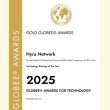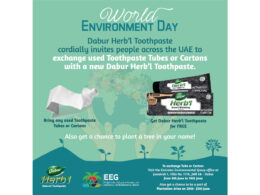- 1,320 claims data analyzed from the 2023 Ramadan period
- 51% third party at fault, 36% shared fault
- Peak accident day times are 1-4pm, followed by 9am-12pm
- 30-39 years old motorists most vulnerable
- RoadSafetyUAE provides specific Ramadan safe driving ‘Tips & Tricks’
During the holy month of Ramadan, it is sad to witness hundreds of accidents and dozens of fatalities every year. Ramadan is a very special time and it is all about being with the ones close to you, which creates a lot of traffic! This festive time also brings unique challenges for all traffic participants.
Tokio Marine, one of the largest UAE auto insurers teamed up with RoadSafetyUAE to analyze their 2023 Ramadan motor insurance claims data (22 March to 20 April 2023) to come up with meaningful insights aimed at raising awareness and protecting UAE road users.
Takako Matsuo, Senior Manager Direct Business and Marketing of Tokio Marine & Nichido Fire Insurance Co., Ltd states: “We collect a significant amount of claims data which we thoroughly analyze and we want to share the key findings for the good of the people and society in the UAE. In this instance, we analyzed 1,320 UAE claims data. The Ramadan period poses a specific challenge to UAE road users and we want to contribute from our side to keep everyone safe on the road.”
Thomas Edelmann, Founder & Managing Director of RoadSafetyUAE states: “Tokio Marine is in a great position to share real-life data benefitting UAE road users. It was amazing to team up with the Team at Tokio Marine to jointly analyze their claims data. It takes great commitment from a company to go the extra mile to use their resources to the broader benefit and to raise the awareness for Ramadan specific road safety. UAE motorists need to be especially careful with regards to the behavior of other drivers in Ramadan, as in more than 50% of accidents third party is at fault and in 36% it is shared fault. Between 1 to 4pm most accidents are taking place (35%), followed by the late morning rush hour from 9-12pm (21%). Wednesdays are the most dangerous week days, while the weekends are the safest. Motorists in the age bracket of 30-39 years are most vulnerable, followed by the segment of 40–49 year olds. Accident claims by nationality seem to follow the demographic distribution.”
The detailed findings of the claims data analysis are:
The Ramadan specific lifestyle has physical effects on our body – especially if Ramadan coincides with the hot weather. Fasting can result in dehydration and low blood sugar, which in turn can affect our attentiveness, concentration, vision and reaction. In addition to fasting, the often unusual and irregular meal timings and sleep patterns can cause fatigue, exhaustion, impatience and distraction, which is reflected in early morning accident peaks.
The rush on the roads is a mix of psychological urges and physical needs and motorists might use this as an excuse to misbehave on the roads.









